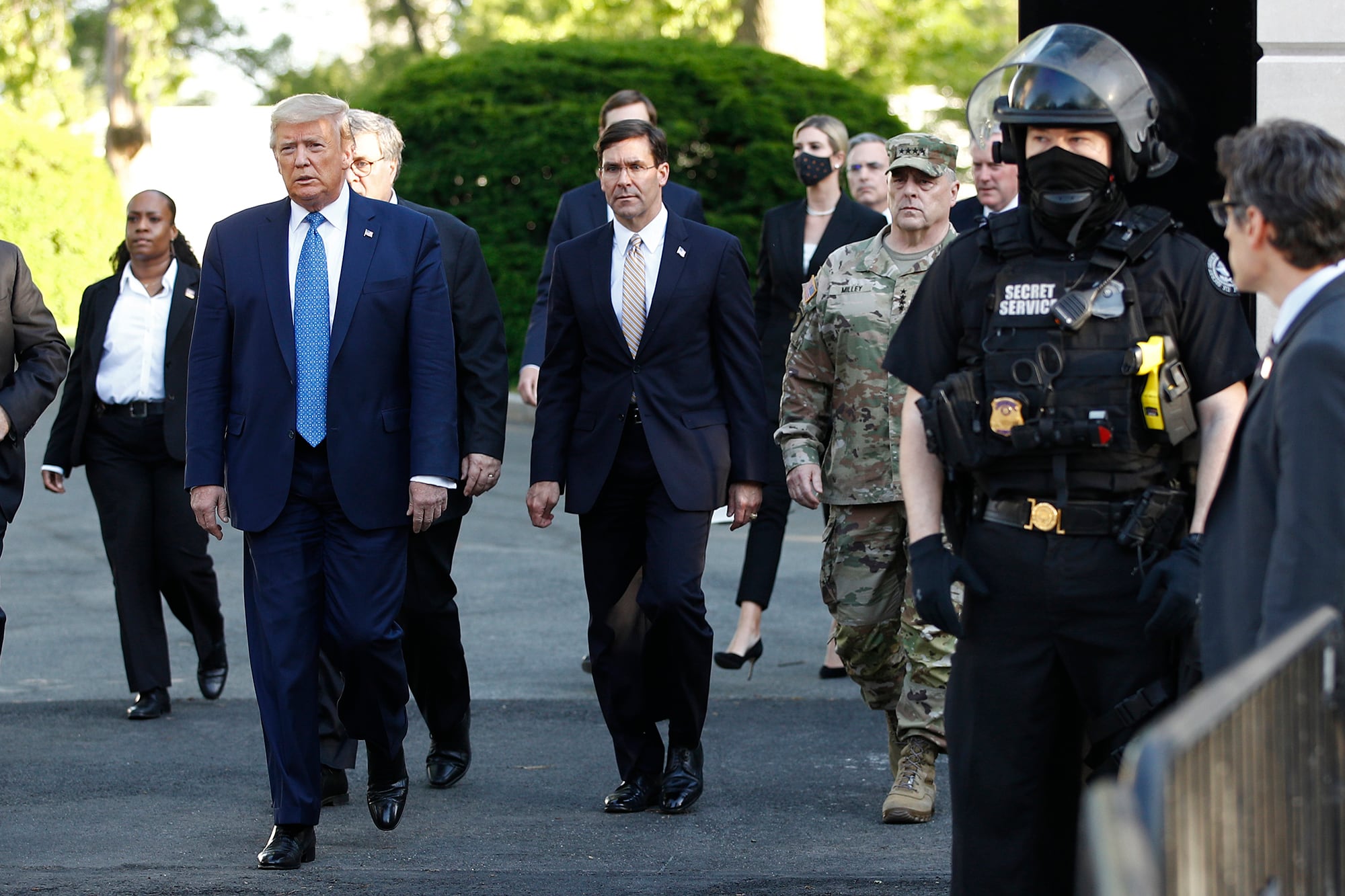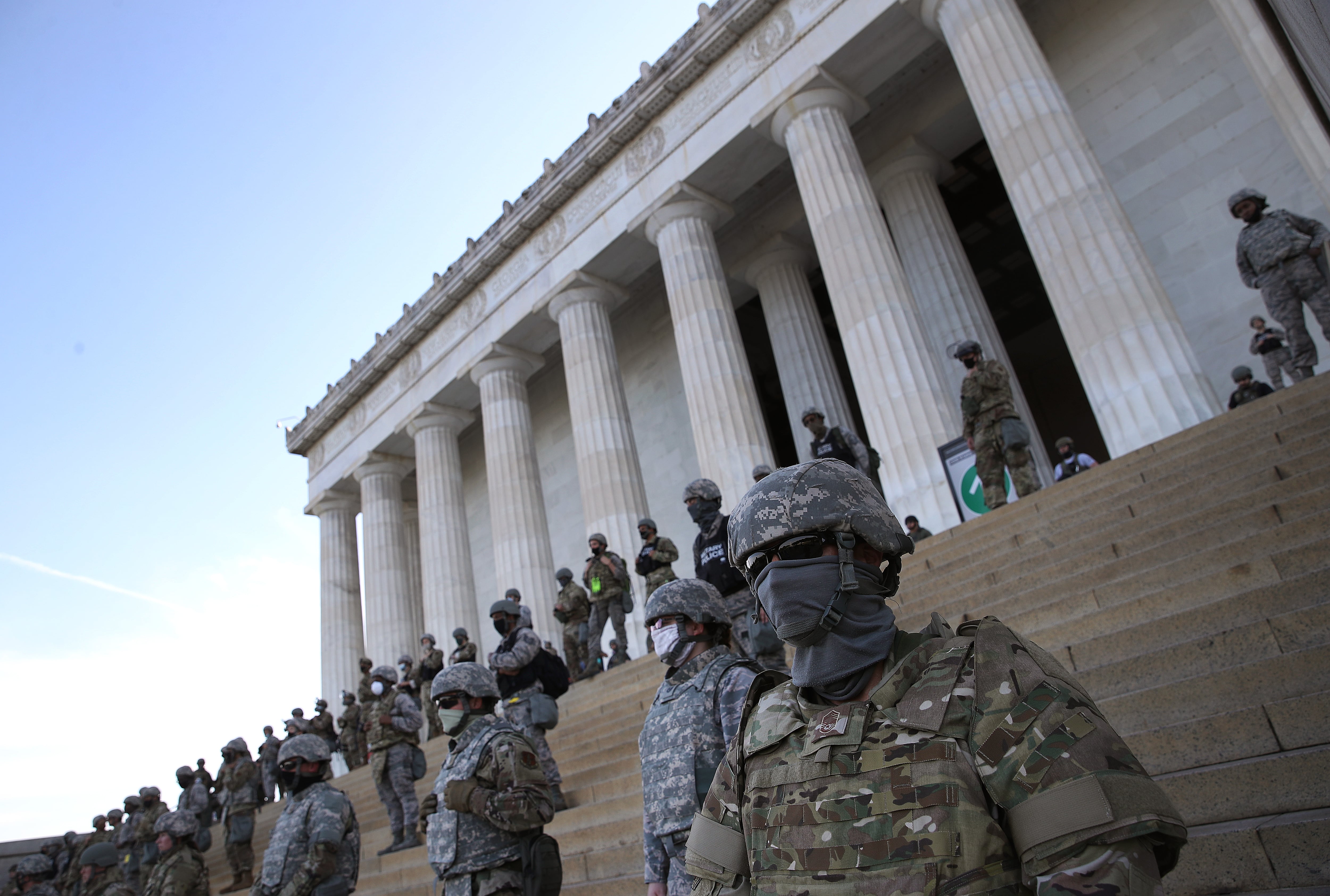A new non-partisan group headed by two former Judge Advocate Generals and a former Guantanamo Bay defense attorney is establishing a legal advice network for troops who might want a second opinion on the legality of orders related to the election.
Military Times interviewed the founders of The Orders Project, who self-style as its “Steering Committee,” via Zoom on Sunday to learn more about their backgrounds, their inspiration, their goals, and the project’s structure. The Washington Post first reported on their plans Friday.
All three of the group’s leaders have a significant experience interacting with the U.S. military.
Eugene Fidell was a uniformed Coast Guard lawyer during the Vietnam era, and in the years since he has worked extensively on military justice — at Yale, New York University, and Harvard, in addition to private practice.
Co-founder Philip Cave is a retired Navy judge advocate general with more than 40 years of combined military justice experience in public and private practice. Cave’s Navy career culminated as deputy director of the Criminal Law Division, Office of the Judge Advocate General of the Navy.
Fidell also formerly headed the National Institute of Military Justice, and Cave sits on its board of directors.
The third co-founder, Brenner Fissell was an attorney-advisor for the U.S. Court of Appeals for the Armed Forces and a Defense Department civilian attorney who worked on defense appeals at the Guantanamo Bay Military Commissions. Fissell is today a law professor at Hofstra University.
“[They] were feeling some discomfort”
Fidell, the former Coast Guard JAG, said that their inspiration for the project began in June, when they began “picking up anecdotal information that the [National Guard troops]...were feeling some discomfort, particularly arising from the Lafayette Park drill in Washington, DC, the one that culminated in President Trump’s photo op at St. John’s [Episcopal] Church.”
These anecdotal reports were borne out by D.C. Army National Guard Maj. Adam DeMarco, who testified to the House Natural Resources Committee in July. “I knew something was wrong” when law enforcement began violently clearing peaceful protestors from Lafayette Square, he said. “I started talking to my fellow service members, and they were expressing many of the same consternation and concerns.”
RELATED

“If you’re making a bet about lawfulness, you would want a lawyer’s input”
Fidell explained that The Orders Project is neither partisan nor attempting to preempt the troops' chain-of-command. “It’s a second line of resources for military personnel,” he said. “The first thing a member who has questions should be doing is picking up the phone and calling his or servicing JAG office or legal assistance office.”
But “if the services for whatever reason are uncomfortable taking those calls…that’s what we’re there for,” Fidell remarked.
He added, “If we’re lucky…we’ll be like the Maytag repair person –– sitting waiting for an email, and the email never comes because everything’s being handled where it should be: by the services.”
Troops seeking advice from Orders Project attorneys can reach them 24/7 via an encrypted email inbox. The possible hypothetical scenarios are endless, and most are unlikely or unthinkable, according to Army Gen. Mark Milley’s comments in a Sunday interview with NPR, but they could include participation in a campaign event or even action against protestors in the election’s aftermath. The latter scenario is more likely to involve National Guard troops, who unlike active-duty forces are permitted to perform law enforcement duties while operating under control of their state’s governor.
Cave, the retired Navy JAG, shared that the group also has a secondary educational goal. They compiled a sourcebook with relevant law, regulations, and caselaw “for people who want to understand or have a more in-depth understanding of the whole concept of obedience to orders, and the risks and benefits.”
Hostra professor Fissell added, “There’s no military case law addressing this context in the domestic deployment framework…[when] you start talking about lawfulness with respect to domestic use of troops, it’s really unclear.
“If you’re making a bet about lawfulness [of an order], you would want a lawyer’s input before making such a bet, right?”
“A posse of people who have been [JAG]s”
The Orders Project acts as a hub for a network of experienced military justice attorneys that are available to provide free advice on an as-needed basis. There is a central encrypted email inbox set up to field inquiries from servicemembers.
The group then refers requests to a rapidly growing list of volunteer attorneys — 12, as of Sunday — who will contact the servicemember with free legal advice. Fidell said it’s “non-negotiable” that all their volunteers have served as uniformed JAGs, leading Fissell, the former DoD civilian, to note, “In fact, I am not eligible to be on the volunteer list –– it’s true!”
All volunteer attorneys receive a copy of the project’s sourcebook and attend a virtual training event before being eligible to receive referrals. Their first training took place on Friday, Fidell said, where they discussed the project and led ten volunteer attorneys through hypothetical scenarios they may face as part of the group.
When asked about what level of potential demand they could handle, Fidell excitedly said, “It has been no challenge at all for us to line up a posse of people who have been judge advocates who are willing to take these calls and give half an hour’s advice on the house…We’ll have the necessary number of volunteers, and if we need more, it’s scalable in a heartbeat.”
Fissell, the Hofstra professor, pointed to the chaotic flood of lawyers ― some of whom were not trained in immigration law — sent to airports on the eve of President Donald Trump’s 2017 travel ban from several majority-Muslim countries as evidence demanding the group “seriously vet” all of its volunteers.
“There’s a side of us that hopes that nothing happens”
Fidell said he hopes the effort is short-lived,
“The premise that we’re all operating on is that this is a one-off project for a one-off period," he said. "Once things have resolved themselves and the country returns to an even keel presumably shortly after Inauguration Day…We can shut down the website. We can stop answering emails, and everybody can go return to their normal duties.”
“We’re not renting a suite of offices — put it that way,” Fidell joked.
Cave was less sanguine, but captured a sentiment greater than his own. “There’s a side of us that hopes that nothing happens and we never hear from anybody.”
Davis Winkie covers the Army for Military Times. He studied history at Vanderbilt and UNC-Chapel Hill, and served five years in the Army Guard. His investigations earned the Society of Professional Journalists' 2023 Sunshine Award and consecutive Military Reporters and Editors honors, among others. Davis was also a 2022 Livingston Awards finalist.





